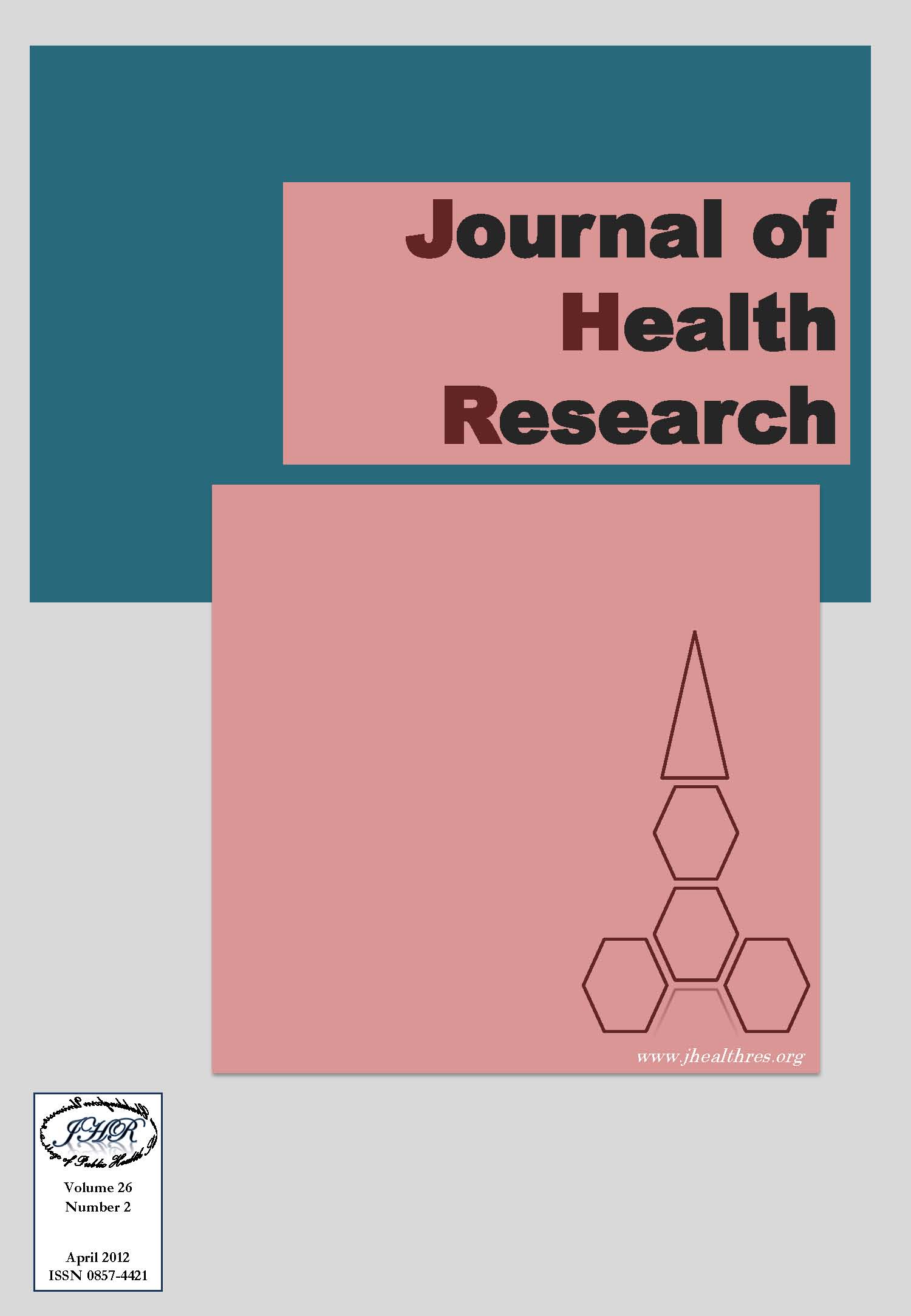Effect of Group Squat Exercises to Perform Activity of Daily Living (ADL) in Elderly People
Keywords:
Squat Exercises, Activity of Daily Living, Physical Independence and ElderlyAbstract
The general objective of the study was to assess effects of group squat exercise on performance of activities of daily living and physical independence in elderly people in Health Centers in Bangkok. This was a quasi-experimental study, with pretest-posttest design in an intervention and a control group. The study used simple random sampling by lottery without replacement to select the participants in both groups. In the intervention group, out of 41 participants, 36 completed the program to the end. In the control group, out of 41 participants, 35 completed the program to the end. Data were collected by standardized interviewer-administered questionnaire, and analyzed by percentage, arithmetic mean, standard deviation, paired t-test, and independent t-test.
The results showed a trend for better performance of activities of daily living, as well as a trend for better performance on physical independence function, in the intervention group than the control group. The intervention group had lower (better) time-get-up-and-go test mean scores than the control group (P<.05), as well as a higher (better) chair stand test mean score (P<.05). There was no significant pre-post difference between groups in the standing balance test in right and left legs.
The results showed that the practice of specific squat exercises in groups, and on a regular basis, has benefits for elderly people, therefore playing an important role in mastering activities of daily living and keeping physical independence. Furthermore, the squat program was unanimously well accepted and appreciated, and no injuries were registered.







